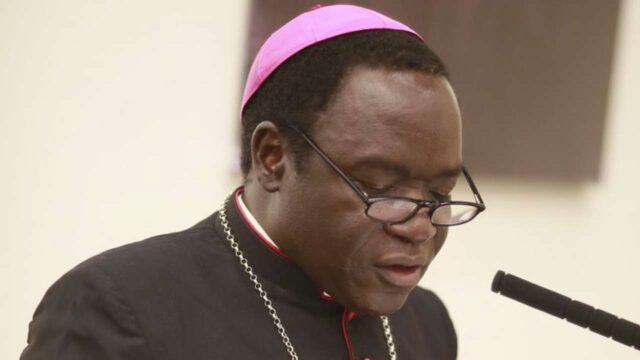
Leadership in Nigeria has always been an issue for debate and a very sensitive topic for discussion because of the numerous controversies surrounding political appointments, dishonesty, and malpractices in the electoral processes.
Another important factor that hinders sincere leadership in Nigeria, and which cannot be easily swept under the carpet, is the fact that the majority of those who aspire to a position of leadership or have the finance, fame, ambition, and intention of becoming a politician or leader, are always motivated with the wrong mindset of enriching themselves with the national resources rather than serve the federation.
Recently, the outspoken Catholic bishop of the diocese of Sokoto, His Lordship, Bishop Kukah, disclosed that the proper administration of governance in the country has been stalled due to “accidental leadership” with no proper succession plans.
The Catholic Cleric made these remarks on Sunday at a virtual session titled “Cast without a plot,” where he entertained questions from panelists on issues bordering on politics, governance, leadership, development, and the lingering crisis of insecurity in the country.
The event which was well attended by dignitaries, was anchored by a renowned professor of history at the University of Texas, Toyin Falola. Various topics were discussed regarding the way forward for the nation.
The Catholic bishop made allusions to the historical past of the country, claiming that the previous leaders who were privileged to rule the country in the past, since her liberation from the colonial masters, took over power without being prepared, nor having a clue on what it would take to manage and solve the challenges that the nation was to face.
According to him; “Buhari had already said after he tried in 2011 ‘I’m done. I’m no longer interested.’ Yar’Adua had already said ‘I’m done. I want to go back to the classroom.’ Obasanjo was brought from prison to (become president),”
Bishop Kukah bemoaned the obvious lack of knowledge and inexperience evident in the unpreparedness of the nation’s past leaders, and according to him, this has limited their ability to plan and “think about how they might resolve the problems of the country. This is what accounts for corruption in the system.”
Bishop Kukah blamed these failures on the lack of formidable institutions which by extension posed a general difficulty to thrive outside of government without political patronage.
“What passes for governance is digging a hole to fill a hole because you borrow money to win elections, and you see that there is a correlation between the spiral of awarding of contracts and the contracts not being finished,” he remarked.
He went further to recommend ways to move the nation forward from all these crises, by insisting that it is important to increase the requirements for leadership positions, and to employ the services of genuine, honest, and exceptional individuals in positions of governance.
One of the quickest and surest ways to achieve this he said, is education, which in turn would expand the frontiers of cohesion within the country.
Quizzed on the role of religion in all of the challenges facing the nation, he simply stated that religion could be likened to a sword in the hands of one, which does what its handler uses it for. He, therefore, reiterated his earlier position on the importance of education which is the basic tool for checkmating all excesses, especially as it ensures independence of thought and healthy debates.
Reacting to a question bordering on Nigeria’s diversity, which for many is the bedrock for most of the agitations for power, Bishop Kukah responded by suggesting that the federal government needs to be sincere, sensitive, and objective in managing the nation’s multiplicity to instill confidence among the citizens.
On the issues of Nigeria’s democracy, Kukah gave an example of the rule of sharia in Zamfara and remarked that an attempt at theocracy in some parts of the country has proved futile.
“What we see (in Zamfara) today is it what we are proud of? Are we saying what we have in northern Nigeria is what we are happy to say that theocracy is what we are happy to have?”
Commenting on the fallout of the #EndSARS protests that almost besieged the country last year, he said that the present administration under President Buhari needs to be aware and become sensitive to the needs of those on the streets. In his words:
“The government should begin to take the street seriously because that’s where the people reside.”…The street is the “most fundamental signpost that we must erect” because “it is on the streets that we speak after the election.” he added.
Gift Joseph Okpakorese







